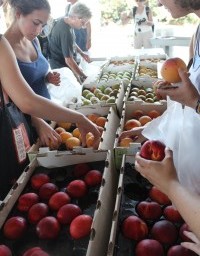In certain circles, some farmers are as famous as rock stars. Bon Appétit Farm to Fork partner Al Courchesne of Frog Hollow Farm in Brentwood, CA, is one of them. Renowned Berkeley, CA, restaurateur Alice Waters has been known to serve his O’Henry peaches, Rainier cherries, Goldensweet apricots, and Warren pears unadorned for dessert at Chez Panisse. To learn why, I organized a tour of Al’s farm along with a group of 50 faculty members, staff, students, and Bon Appétit Sous Chef Cheylin Hale from Mills College in Oakland, CA.
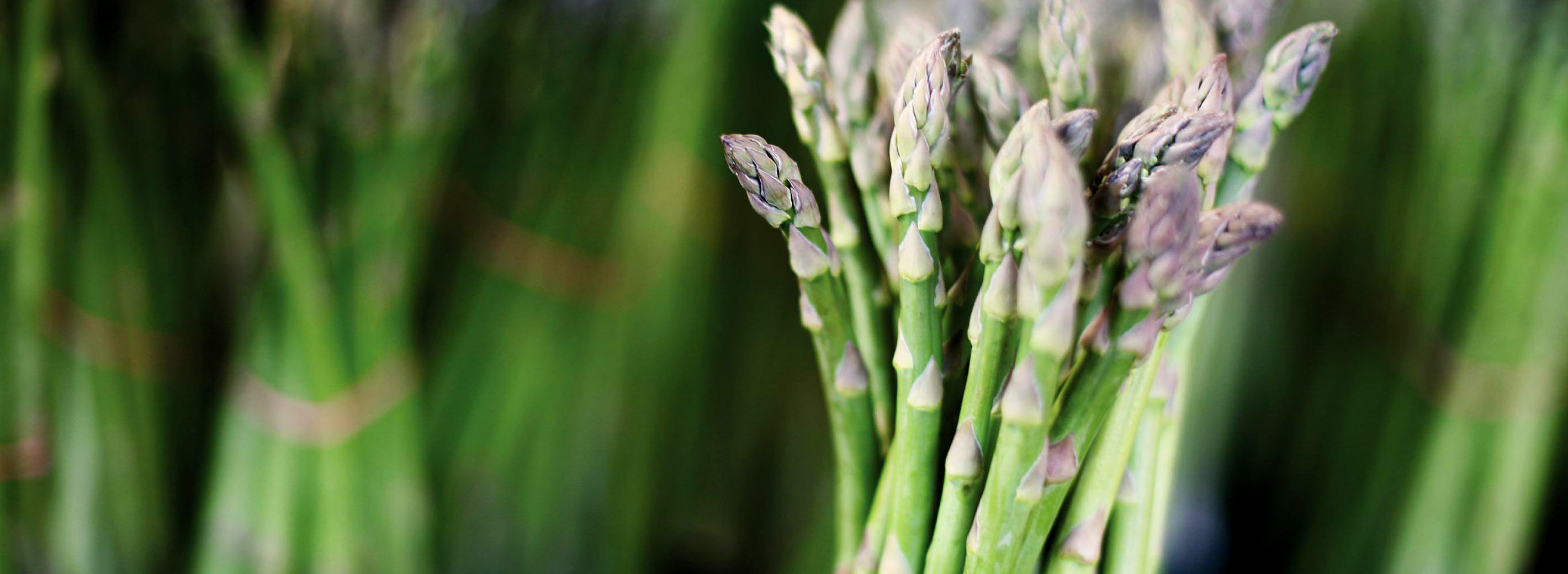
Blog: Featured
+ Blog Categories

Redlands Farm Feast Connects Eaters, Farmers, and Chefs
- Blog
Redlands in California’s San Bernardino Valley has a rich agricultural heritage, having once been one of the area’s largest producers of citrus crops. The Redlands Conservancy seeks to preserve both the agricultural land and its heritage – goals Bon Appétit is proud to support.
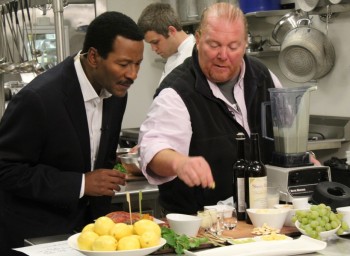
An Intimate Evening with Mario Batali at the Seattle Art Museum
- Blog
For a special fundraiser for the Seattle Art Museum on Friday, November 4, Bon Appétit’s TASTE Restaurant team worked with internationally renowned chef Mario Batali. Projected to raise $300,000 for the Seattle Art Museum, this extraordinary epicurean event featured a family-style dinner with Batali as well as a panel discussion among Batali; Thierry Rautureau, The Chef in the Hat™; and Steve Pool of KOMO News. Guests enjoyed signature Batali dinner platters, hors d’oeuvres, and desserts. TASTE’s menu was designed to bring Batali back to the Northwest, where he grew up, drawing ingredients from farms close by.
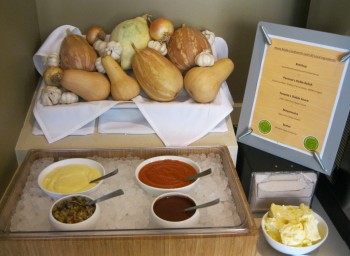
Eat Local Challenge 2011: Nourishing Guests, Communities, and the Environment
- Blog
How local can you go — food wise? That was the challenge taken up by dozens of Bon Appétit Management Company chefs in 31 states for the seventh annual Eat Local Challenge on Tuesday, September 27, 2011. Some cooked a meal from 99.9% local ingredients, with salt as the only allowable non-local ingredient. A few went 100% local — meaning they even foraged for salt from within 150 miles of the café. Others focused on serving one excellent local meal. The reasons to source local ingredients are simple but important if you care about sustainability: it tastes better, is more nutritious, encourages biodiversity, preserves open space, and protects the environment, just to name a few. The companywide Farm to Fork program has helped Bon Appétit accounts learn about what’s available in their area throughout the year, and how to use […]

Wash U Paper Highlights Beloved Bon Appétit Cashier
- Blog
Student Life, Washington University at Saint Louis’s campus newspaper, recently profiled Angela Ford, a Bon Appétit cashier at the Bear’s Den because of her positive attitude and ability to brighten every customer’s day.
Celebrating Food Week at the University of Pennsylvania
- Blog
The University of Pennsylvania is now in the midst of its third annual Food Week, sponsored by Bon Appétit at Penn Dining. This annual celebration covers a variety of topics — from local food, to food justice, to nutrition — and is a collaborative effort among students, faculty, local community activists and farmers, and Fox Leadership at Penn. Here are some highlights of last year’s Food Week, including a Food Justice Banquet in the form of a four-course meal (catered by Bon Appétit of course) and a panel on agriculture featuring several of our Farm to Fork partners:

Recipe: Bon Appétit at Nordstrom’s All-Local Scallops, Chard, and Farro
- Blog
The Eat Local Challenge has become one of my favorite celebrations each year. While many of our usual holidays come with prescribed dishes, such as turkey and stuffing for Thanksgiving, brisket and matzoh ball soup for Passover, and cookies topped with red and green sprinkles for Christmas, the Eat Local Challenge menu is always different — year to year, chef to chef, and region by region. The challenge is to create an whole menu where every ingredient (except for salt) comes from within 150 miles. While this is no easy task, I also find the challenge to be encouraging. Whether a chef or an eater, it encourages everyone to explore unusual flavors – found on our local farm and range lands and in our forests, lakes, and oceans, to learn about new producers, and tap into our inner creative spirit.
Employee Spotlight: Arthur Curtis, Making Wash U Folks Smile Every Day
- Blog
This video is the first in a series highlighting Bon Appétit employees across the country and the wonderful work they do. Here we are proud to introduce a man who brings a smile to countless faces every day—Arthur Curtis, line server at Bon Appétit at Washington University in St. Louis.
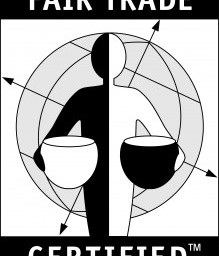
“Ethically Delicious” Uniforms in time for Fair Trade Month
- Blog
Conscientious consumers rely on third-party-certified labeling programs such as organic, which reassures us that those products were grown without toxic pesticides or using genetically engineered seeds, and Certified Humane, which tells us that the animals we’re eating were raised ethically. But neither of those labels tells us anything about how the people behind the products were treated. That’s why the Fair Trade Certified™ label is so important. October is Fair Trade month, and we at Bon Appétit Management Company are proud to have partnered with Fair Trade USA to help raise awareness.
Young Farmworkers Share Their Stories in New Film
- Blog
For most industries, state law in North Carolina mandates that children must be at least 14 years old to work. But like the rest of the country, there is no age requirement for agricultural work and many start at 10 or 12, and get exposed to toxic pesticides during formative years. Toxic Free NC is a non-profit organization that works to “put people before pesticides” and advocates for alternatives that protect the health and environment of those in the surrounding community. In 2008, they started the Farm Worker Documentary Project, documenting the experiences of workers in fields and labor camps across North Carolina. Their most recent project is called Overworked & Under Spray: Young Farm Workers’ Pesticide Stories. Six young farm workers talk about their pesticide exposure in the fields and the resulting health effects. The film also includes advocacy […]
